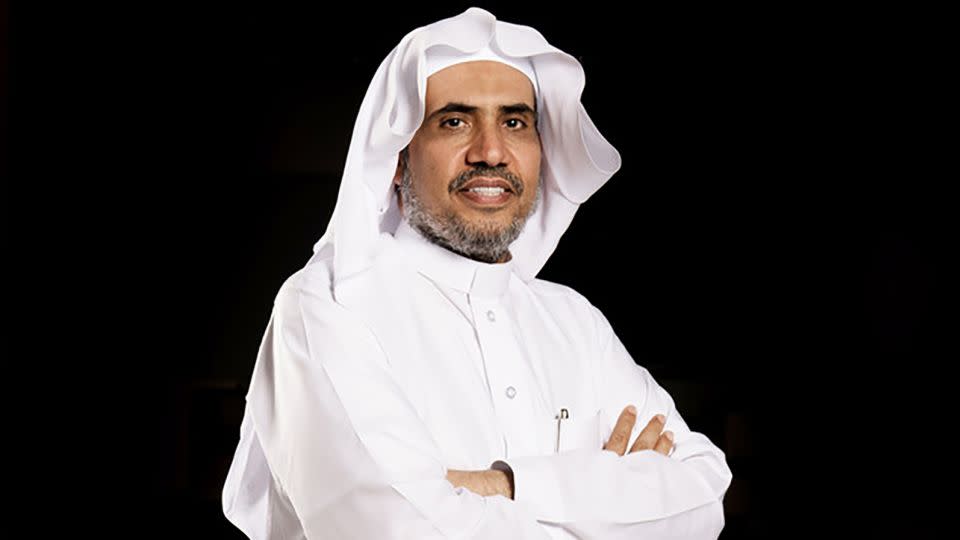Opinion: I was the most senior Islamic leader to visit Auschwitz. Here’s what I know about peace

Editor’s Note: Sheikh Mohammed Al-Issa is the Secretary General of the Muslim World League. The views expressed in this commentary are his own. Read more CNN opinion here.
In January 2020, I led a delegation of more than 60 prominent Arab Muslims, including 25 religious leaders, on what our Jewish hosts called a “groundbreaking” visit to the notorious Auschwitz-Birkenau Nazi death camps.

Ours was the most senior Islamic delegation to visit the site during its sorrowful history.
Passing through the infamous gates was a visceral, emotionally-arresting experience that managed to both transport me back in time and sharpen my mind on the future. For it was here that 1.1 million people, the vast majority of them Jews, were murdered during the Holocaust. And it was here that I reaffirmed my commitment to fight intolerance and hate in all its forms.
This visit was our moral obligation and an overdue sign of solidarity with our Jewish brothers and sisters, with whom we must tackle the many injustices and enmities there are in the world.
Indeed, all the world’s major faiths — Christian, Judaic, Hindu, Buddhist and Hindu — have at their core a commitment to peace and justice that starts with recognition of the struggles of our fellow travelers.
Now, on the cusp of the 78-year anniversary of the liberation of Majdanek (22-23 July, 1944), which was the first of the Nazi camps to be freed by the Allies, we must ask ourselves: does the truth of the Holocaust continue to set hearts and minds, once blinded by ignorance, fear and prejudice, free?
The honest answer is that while Muslim understanding of the Holocaust is important to bringing lasting peace to the Holy Lands, Holocaust ignorance and denial remains a worrisome trend that only worsens with the passage of time.
Trivializing the Holocaust, we know too well, opens pathways to denial and to antisemitism, which still persists in the world, for sure. But it is a cross-cultural, cross-ethnic, cross-national, cross-religion phenomena.
One poll, conducted earlier this year by the American Jewish Committee, found that only 53% of Americans over the age of 18 answered correctly that approximately six million Jews were killed in the Holocaust, while 20% explicitly said they were not sure. In the poll, 2% said that less than one million were killed, 13% chose approximately three million, and 11% said more than 12 million.
The truth can set us free. And the truth of the Holocaust must continue to open our eyes to the horrors humankind is capable of inflicting — and help guide us to the truth of our common humanity and our shared destiny.
But we must live, practice, and teach this truth every day, to keep the shadow of lies and ignorance from again overtaking our world.
We can do this primarily through education and interfaith dialogue. There are ever more interfaith clubs and organizations sprouting across communities and college campuses, including the new Interfaith Research Lab at Columbia University, which I helped inaugurate with Cardinal Timothy Dolan and Rabbi Arthur Schneier.
We can also work to build bridges of peace between the diverse peoples of the world, and be a force for a new, faith-driven diplomacy that compliments the traditional efforts of governments to achieve peace.
This idea is already bearing fruit. Last year, The Muslim World League, together with Christian, Jewish, Shinto and other partners, took part in the G20 Summit of Nations in Bali, Indonesia as the “R20” (the Religion 20), an engagement group aiming to leverage the power of world religions to tackle pressing global challenges.
And just last month, we hosted a high-level interfaith summit of religious leaders and diplomats at United Nations Headquarters in New York, aimed at soothing over growing tensions between east and west.
These are not naïve exercises. Two historical facts are worth remembering. First, it was the Soviet Red Army – which was then allied with America and the West – that liberated Auschwitz-Birkenau, as well as Majdanek, in the 1940s.
Second, while the overwhelming number of victims of Nazi barbarity were Jews, among the murdered at Auschwitz were dozens of Muslims. The lessons here are clear. The clash of peoples is not inevitable. Good can defeat evil. And hate is an all-consuming pyre.
We all rise or fall together. And as we remember the liberation of Majdanek, that is the truth that shall set us free.
For more CNN news and newsletters create an account at CNN.com

